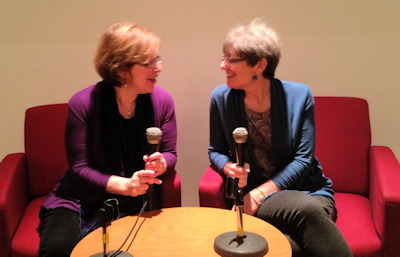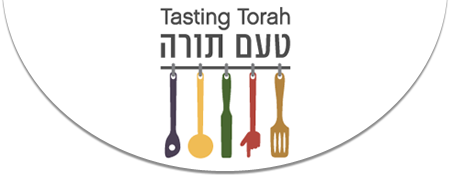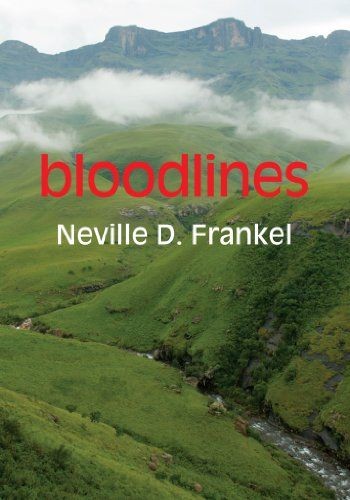 |
| Vera and Alisa in deep discussion about their days at the Institute. |
Reading Guide for Jewish Luck: A True Story of Friendship, Deception, and Risky Business
To the reader or browser: We hope no one feels bombarded by the number of questions. Leslie and I belong to multiple book groups, and we know the dynamics of each are different. We wrote the questions to try and accommodate all manner of discussion. At first, we thought the best part of writing a book was the creative process. Now we’re excited to hear our readers' responses. If you have comments or additional questions we could pose, let us know via our facebook page or webpage contact.
General Impressions
-
What was your response to the title before reading the book? Now that you’ve read the book, what is your response to the title?
-
What is your interpretation of “Jewish Luck?” (You may want to check out our first blog.)
-
How do the quotes at the beginning of each chapter set the tone?
-
What did you think of the structure of the book --- the alternating chapters of Alisa and Vera together, Alisa’s life, Vera’s life, and the sections that presented historical background?
Vera and Alisa and everyone else in Jewish Luck. Character analysis
-
With which character do you most identify? Why?
-
Does your opinion of various characters change throughout the book? How and why?
-
Vera and Alisa are both faced with important decisions that will affect not only their own lives but the lives of their loved ones. Discuss their various choices and what is at stake. Does each character make the right decision, in your opinion? What would you have done?
Examples:
-
Alisa decides to flee the USSR and leave her family behind in the Soviet Union.
-
Vera refuses to leave Russia even after the attacks on her family, home, and business.
-
-
Neither Alisa nor Vera felt free or completely at home in Russia. Alisa left while Vera stayed. What would you have done and why?
-
Both Vera and Alisa see themselves as strong women, directing their own lives. Do you agree with their self-assessment?
-
Both Vera and Alisa defy some of the Soviet norms, skirt the law, and in some cases disobey the law. Are they justified?
-
What role does their Jewish heritage play in each of the women’s lives?
-
Vera believes that the post-Soviet business world lacks ethics as well as a sense of how to do business with Americans. Do you think she is correct? What accounts for that phenomenon and why does Vera succeed where others have failed?
-
How do Vera and Alisa deploy humor to cope with tough situations? What other coping mechanisms do people use?
- The book ends in March 2012. What do you think has happened to Vera and Alisa since the book was written? For the answer, check the blogs and feel free to email me (This email address is being protected from spambots. You need JavaScript enabled to view it.) or set up a skype conversation and we'll continue the story. Hint: Even we two authors are surprised by the turns the women's lives have taken.
Inside the Family
-
How did Alisa and Vera’s childhoods and family rules differ and in what ways were they alike?
-
How do you feel your family’s background affects your personality and your life story?
-
What role do the grandmothers: Baba Lyuba, Rosa, and Grandma Rae play in the lives of their granddaughters: Vera, Alisa, and the authors?
-
What impact did your grandmother or grandfather have on you that differed from your parent’s influence? When you are a grandparent, in what specific ways would you like to influence current or future grandchildren?
-
Why do you think both Vera and Alisa’s older brothers are dependent on their sisters and less able to cope with the changes in their worlds?
-
What do you predict for the future for the children of Vera (Lev) and Alisa (Daniella)?
The BIG Themes
-
To what extent does luck or ethnicity determine Vera and Alisa’s future, and how responsible is each for her own fate? What is the role of luck in the lives of Vera and Alisa’s parents?
-
Discuss the role of friendship in Jewish Luck. It’s clear that after college Vera and Alisa’s paths diverge. What keeps their friendship alive for thirty-five years beyond college?
-
Do you have a long-term friend who has disappeared from your life for a length of time and returned? Have you been the disappearing friend? What accounts for the ability to reconcile and remain friends?
-
How do you feel about the continuing arguments between Vera and Alisa?
-
Both Alisa and Vera collect art. What is the meaning of art and esthetics (selecting designer clothes, choosing their interior design) in their lives?
-
Both women eventually leave their homeland—Alisa in the late 1980s and Vera in 2012. Do you think immigrants can ever integrate into a new society? What makes it difficult for each and what eases the path for each to adjusting to her new country?
-
In Jewish Luck, there are many chance encounters that lead characters on a new path. Have you experienced a chance encounter that has changed your life?
-
Discuss the notion of vranya (deception). How do Russians play the game of vranya in their daily lives? What do Vera and Alisa’s parents hide from them? What kinds of information did your parents hide from you? Is vranya present in your culture?
- As authors we were privileged to listen to Alisa and Vera reveal themselves bit by bit. Can you recall listening to someone talk about himself or herself and feeling that his or her life merited a book? What do you remember about that person's story that captivated you?
If you like history, try these questions. (Try them even if you think you don’t like history).
-
What did you learn that surprised you about Russian History or life under the Soviets from the book?
-
Do you think the American press accurately portrayed the Soviet Union during the Cold War?
-
Based on your reading of the book, what are your impressions of life under the Soviet system? Under perestroika and glasnost? Under independent Russia? In Sweden?
-
How do Alisa and Vera’s struggles to succeed in the workplace mirror those of American women in the 1980s and 1990s? What is different in your opinion?
-
In theory, all people are equal in communist societies. What social divisions do you discern when you read Jewish Luck? What groups of people do Vera and Alisa disdain? What groups do they admire?
-
What social divisions do you remember growing up?
-
Recalling the encounter between Leslie, Lars and Vera on the street corner, how is it indicative of the differences between the East and the West?
-
What connections did Vera and Alisa and their families have to the West during the Cold War? How did that differentiate their lives from families who were more isolated from the West?
-
When the Imperial Russian government restricted Jews to the Pale of Settlement, they, paradoxically, reinforced Jewish culture. Jews were responsible for running their own institutions including orphanages, courts, schools as well as synagogues. In a free and open society, what are the challenges for Jews to maintain their identity?
-
Access the film clips on YouTube from Jewish Luck filmed by Mosfilm in 1925. Is this how you picture the shtetl?
-
The USSR was founded as an atheist state. In the 1920s and early 1930s many churches and synagogues were destroyed. No matter if a Jew was born in Moscow or Riga, he or she had to declare his or her nationality as “Jewish” on the fifth line of the internal passport. What’s your opinion of this? How do you think it affected Jewish identity or Jewish assimilation into the USSR?
-
What do you think is the most salient reason that American Jews assimilate into American culture?
-
The US to some extent and the USSR to a great extent were deceptive in their dealings with each other and with the public. Both countries would cite the need for security. Can you point to any information it would have been beneficial for the two governments to share during the Cold War that you learned either from this book or from other sources?
Memory -–construction and remont
-
Both Vera and Alisa experience revelations throughout their life and in the course of research for the book. How did those revelations change their views of people they knew and of their own history? Has this happened to you?
-
As the authors interviewed Alisa and Vera, they uncovered bits of their past that shook their memories. For example, Alisa learned her brother had been privy to information about their father helping out one of the so-called Leningrad hijackers. Vera learned that her brother was considering moving to Israel and kept in touch with his Russian friends there. How do those revelations and any other revelations you can recall affect each woman? How have you felt when you learn a story about your past is not really the truth?
-
On a macro level Soviets and American citizens learn about their country’s history as their archives are opened. What revelations do you think altered Russian or American citizens’ views of their own country?
-
Can you recall learning something about US History that shook your perceptions and beliefs?
-
Memory is selective as we reconstruct the past. Are there any memories either Vera or Alisa shares that strike you as improbable?
Current Issues
-
How do you feel about the current Russian government sheltering Snowden? Imprisoning Pussy Riot? Annexing Crimea?
-
If you were Alisa or Vera would you be worried about returning to Russia as a visitor?
-
What do you predict Russia’s government and society will look like ten years from now?




